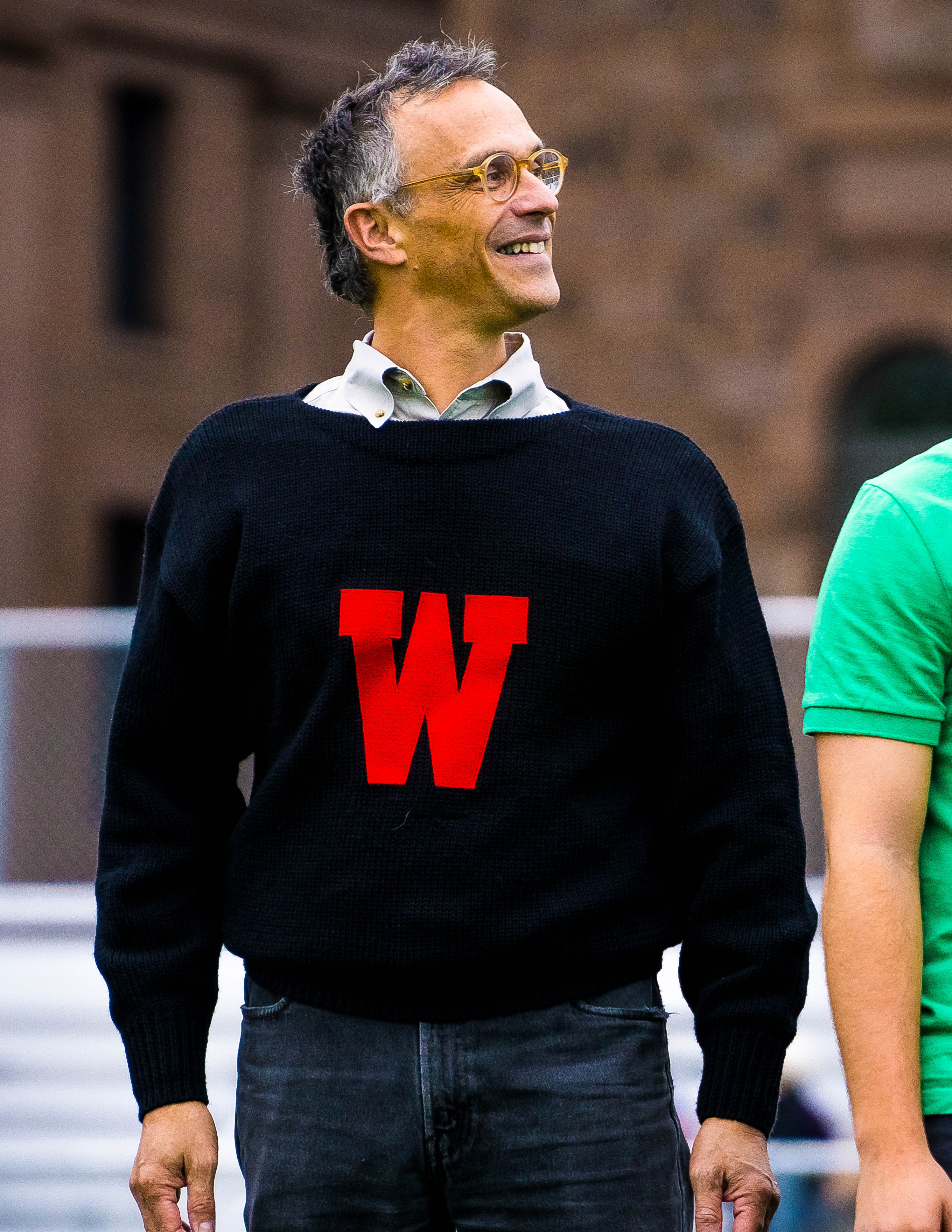
Jonas Powell, Photo Editor
The Association of American Colleges & Universities (AAC&U) presented the 2016 Frederic W. Ness Book Award to Wesleyan President Michael Roth last Thursday, Jan. 21 for his book “Beyond the University: Why Liberal Education Matters.”
The AAC&U is an organization with 1,300 member schools including Wesleyan. Its main objectives are to organize programs, publish journals, sponsor meetings, and give out awards.
“The mission of the Association of American Colleges and Universities is to make liberal education and inclusive excellence the foundation for institutional purpose and educational practice in higher education,” reads the AAC&U website.
The Frederic W. Ness Book Award was established by the AAC&U in 1979 and was named after their president at the time. Each year, it is given to the book that effectively demonstrates the workings and goals of a modern-day liberal education.
“The book should focus on: liberal education as an evolving tradition; or the role of liberal education in a particular context; or an issue or topic in secondary or postsecondary education discussed substantially in relation to liberal education,” the website states.
The award is $2,000. It is generally awarded to authors associated with universities in the United States. These include former Harvard President Derek Bok in 2008 for his Princeton-published book “Our Underachieving Colleges,” as well as other writers from Harvard, Columbia, Temple, and the University of California, among other institutions.
Some writers who are not affiliated with a university have also received the award. Most recently, Professor Azar Nafisi was awarded the prize in 2005 for her book “Reading Lolita in Tehran,” which was published by Random House.
Out of 27 eligible nominees this year, Roth’s book was considered the most representative of the AAC&U’s ideal vision of liberal education. According to the publisher, Roth’s book explores the ongoing debate concerning a vocational versus a liberal arts education while also assessing the current state of higher education in America. Concerning the argument that liberal education is too unfocused on professional skills to adequately prepare a person for the workforce and too expensive to be financially practical, he ends with a supplication defending the continuing value of a liberal education.
“Roth explores these arguments (and more), considers the state of higher education today, and concludes with a stirring plea for the kind of education that has, since the founding of the nation, cultivated individual freedom, promulgated civic virtue, and instilled hope for the future,” wrote the publisher.
In an interview on “All Things Considered” on NPR about his book, Roth discussed the implications of rising tuition costs.
“As costs have escalated and financial aid has not kept up with those costs, elite education has become a way of cementing privilege rather than opening up elite [education] to more voices and more talents,” he said.
It should be noted that under his leadership Wesleyan shifted away from being need-blind in its application process. He defended himself at the time of the change by saying that the goal is not to “wear a badge of moral purity,” but rather to encourage the success of students who will go on to graduate from the University.
According to Roth, eliminating need-blind admissions allows for more financial aid to be allocated per eligible student each year. Whether or not this decision was appropriate has been the topic of debate since it was implemented in 2012, and the potentially contradictory philosophy in his book is yet another addition to this discussion.
Overall, the book has been received positively and has been reviewed by many major publications. It has been used at Harvard as required reading for incoming students, and it is currently being translated into Korean and Chinese.
“President Roth’s next book will examine the development of ideas of virtue, virtuosity and vice,” said Lauren Rubenstein, Manager of Media Relations and Public Relations at the University. “He is interested in ‘messy virtue.’”
His next book is tentatively titled “Happiness without Purity: Why Virtue Matters.”